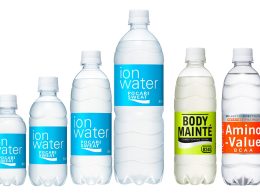Microsoft is set to revolutionise carbon capture and storage (CCS) with its new technological initiatives, addressing the costly and complex process of identifying suitable CCS sites. Traditional methods in this field often lead to increased costs and data silos between site selection and operational concerns, creating barriers for businesses interested in CCS.
By 2030, Microsoft plans to remove five million metric tons of carbon annually. To enhance the return on investment (ROI) for CCS projects, the company will utilise Azure Data Manager for Energy, powered by Azure AI and Microsoft Copilot. This new system will support CCS projects by optimising costs, automating processes, and discovering best practices. Microsoft’s global partner network will further bolster these efforts with specialized CCS solutions.
Microsoft’s approach focuses on scalability, standardisation, and security, crucial for advancing the CCS industry. Azure Data Manager for Energy aligns with the OSDU® and OPC Unified Architecture (OPC UA) standards, facilitating the development of new services and eliminating data silos. This technology, combined with Microsoft Fabric and Environmental Credit Service, will help the energy sector validate and report CCS activities and carbon credit purchases.
The integration of AI with Azure’s hyper-scalability is set to transform the CCS site selection process. Traditionally, the process involves complex, time-consuming simulations of seismic data. Microsoft’s AI-powered solutions promise to enhance efficiency by enabling the rapid execution of these simulations, which could significantly shorten site selection timelines and reduce costs while maintaining a low carbon footprint.
Microsoft is working to ensure that CCS data remains under customer control, thus ensuring security. By enabling Azure Data Manager for Energy on customer cloud tenants, Microsoft aims to provide both security and control. Additionally, the company is developing a toolkit to support partners in creating integrated CCS solutions.
Microsoft’s technological advancements aim to address global carbon removal targets, as highlighted by the US Department of Energy’s Pacific Northwest National Laboratory. The goal is to remove 10 gigatons of CO2 annually by 2050. With Europe’s significant storage capacity for CO2, Microsoft’s efforts to streamline and enhance the CCS process represent a major step toward achieving these critical environmental goals.

















